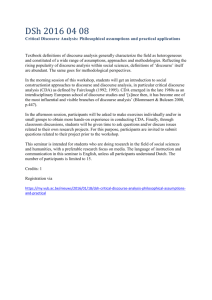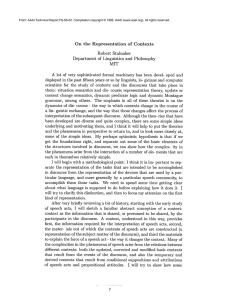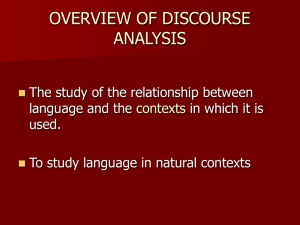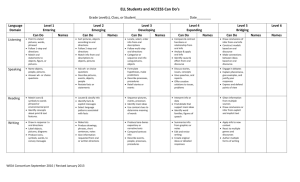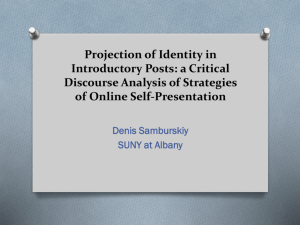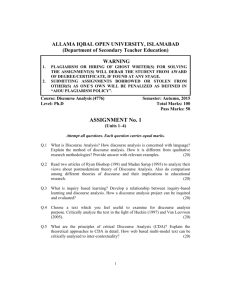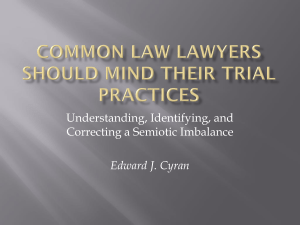Context is/as Critique
advertisement
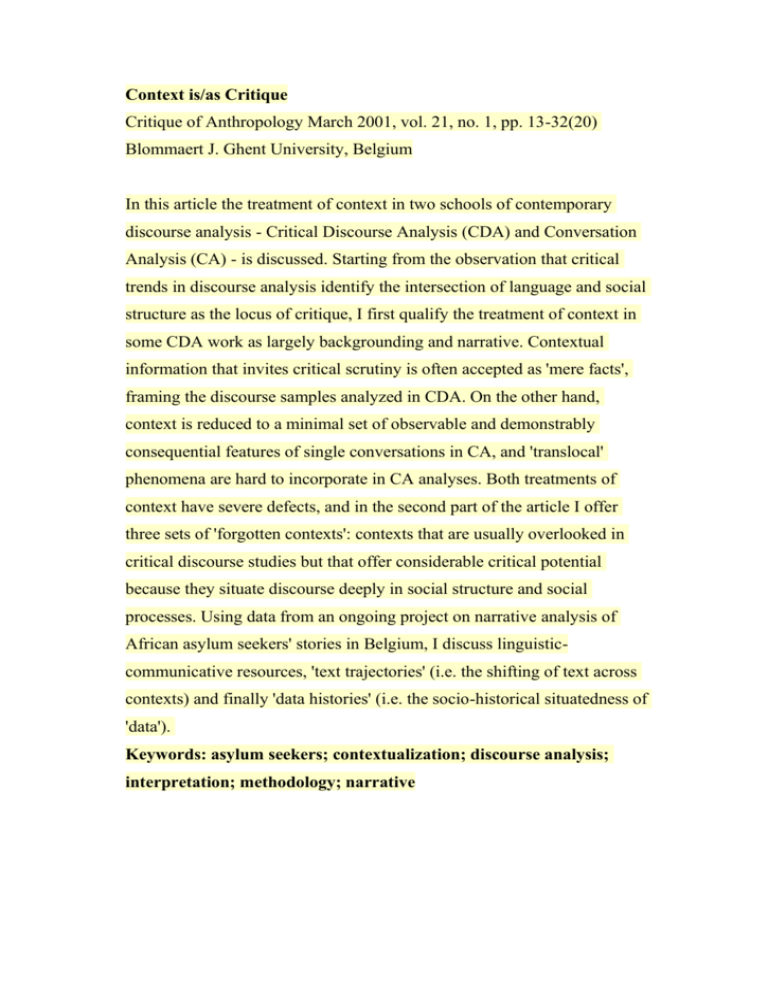
Context is/as Critique Critique of Anthropology March 2001, vol. 21, no. 1, pp. 13 -32(20) Blommaert J. Ghent University, Belgium In this article the treatment of context in two schools of contemporary discourse analysis - Critical Discourse Analysis (CDA) and Conversation Analysis (CA) - is discussed. Starting from the observation that critical trends in discourse analysis identify the intersection of language and social structure as the locus of critique, I first qualify the treatment of context in some CDA work as largely backgrounding and narrative. Contextual information that invites critical scrutiny is often accepted as 'mere facts', framing the discourse samples analyzed in CDA. On the other hand, context is reduced to a minimal set of observable and demonstrably consequential features of single conversations in CA, and 'translocal' phenomena are hard to incorporate in CA analyses. Both treatments of context have severe defects, and in the second part of the article I offer three sets of 'forgotten contexts': contexts that are usually overlooked in critical discourse studies but that offer considerable critical potential because they situate discourse deeply in social structure and social processes. Using data from an ongoing project on narrative analysis of African asylum seekers' stories in Belgium, I discuss linguisticcommunicative resources, 'text trajectories' (i.e. the shifting of text across contexts) and finally 'data histories' (i.e. the socio-historical situatedness of 'data'). Keywords: asylum seekers; contextualization; discourse analysis; interpretation; methodology; narrative


